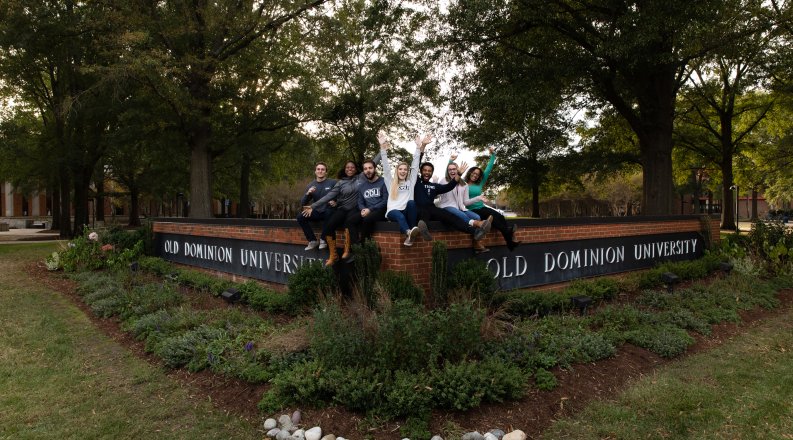Old Dominion University Civil Engineering Faculty: A 2024 Overview
Old Dominion University (ODU), located in Norfolk, Virginia, has long been recognized for its commitment to academic excellence, particularly in STEM fields. Among its most notable departments is the Civil and Environmental Engineering faculty, which plays a critical role in shaping the next generation of engineers. As we enter 2024, this department continues to innovate, expanding both its academic offerings and research capabilities.
This article will explore the ODU Civil Engineering faculty, focusing on its history, curriculum, key faculty members, ongoing research projects, and the department’s future outlook. Whether you’re a prospective student, a researcher, or an engineering enthusiast, understanding the unique features of this program will offer valuable insight into why Old Dominion University remains a premier institution for civil engineering education.

1. History and Mission of the Civil Engineering Department
The Civil Engineering department at Old Dominion University was founded with a mission to prepare students to meet the demands of the modern world through education, research, and community engagement. Since its inception, the department has grown steadily, fostering a reputation for producing skilled engineers equipped to tackle both local and global challenges.
ODU has always recognized the importance of civil engineering in infrastructure development, urban planning, and environmental stewardship. The department’s early curriculum was designed to provide students with a solid foundation in mathematics, physics, and engineering principles while incorporating hands-on experience in real-world projects.
In 2024, the mission remains steadfast: to provide high-quality education and training to students while engaging in cutting-edge research that contributes to the advancement of civil engineering. The department emphasizes sustainability, resilience, and innovation—values that align with the pressing challenges of the modern world.
2. Curriculum and Academic Programs
ODU’s Civil Engineering program offers a comprehensive range of academic programs, from undergraduate degrees to Ph.D. programs, each designed to address the varied aspects of civil engineering, such as structural engineering, transportation, water resources, and environmental systems.
a. **Bachelor of Science in Civil Engineering (BSCE)**
The undergraduate program is ABET-accredited, ensuring that it meets rigorous standards of quality. In the Bachelor of Science in Civil Engineering (BSCE) program, students engage in a robust curriculum that covers the following key areas:
– **Structural Engineering**: Students study the design and analysis of buildings, bridges, and other infrastructure.
– **Geotechnical Engineering**: Focuses on the behavior of earth materials and how they interact with structures.
– **Water Resources and Environmental Engineering**: Addresses the sustainable management of water systems, environmental protection, and pollution control.
– **Transportation Engineering**: Encompasses the planning, design, and operation of transportation systems.
– **Construction Engineering and Management**: Combines the technical aspects of engineering with project management principles to oversee construction projects.
The BSCE program at ODU also incorporates a “hands-on” learning approach. Students participate in laboratory sessions, capstone projects, and internships with local engineering firms. This blend of theoretical knowledge and practical experience ensures that graduates are job-ready and equipped to handle the complexities of civil engineering.

b. **Master’s and Ph.D. Programs**
For students who wish to deepen their knowledge and specialize in a particular area of civil engineering, ODU offers both Master of Science (M.S.) and Doctor of Philosophy (Ph.D.) programs. These graduate programs emphasize research and advanced coursework in specialized fields such as
– **Structural Engineering**
– **Sustainable Infrastructure**
– **Coastal and Marine Engineering**
– **Environmental Engineering and Sustainability**
– **Intelligent Transportation Systems**
The master’s program is designed to allow students to either pursue a research-oriented path or opt for a professional project track, depending on their career goals. The Ph.D. program, on the other hand, is highly research-intensive, with students working alongside faculty on innovative projects aimed at solving contemporary challenges in the civil engineering domain.
3. Key Faculty Members
The strength of any academic program lies in its faculty, and ODU’s Civil Engineering department is no exception. The faculty at ODU comprises a group of highly qualified and experienced professionals, many of whom are leaders in their respective fields. These faculty members are not only educators but also active researchers, consultants, and industry experts.
a. **Dr. Mehrdad Tajdaran**
As one of the leading figures in the structural engineering field, Dr. Mehrdad Tajdaran brings a wealth of knowledge to the department. His research focuses on the design and analysis of resilient infrastructure, particularly in seismic zones. He is also involved in several projects related to the rehabilitation of aging infrastructure in the U.S.
b. **Dr. Kofi Obeng**
Specializing in transportation systems and urban mobility, Dr. Obeng has contributed significantly to the advancement of intelligent transportation systems. His work on traffic modeling and simulation has influenced urban planning and the development of more efficient transportation networks.
c. **Dr. Shereen Farouk**
A leading expert in water resources and environmental engineering, Dr. Farouk’s research focuses on water quality, pollution control, and sustainable water management. She has published extensively on the impact of climate change on water systems, particularly in coastal regions.
d. **Dr. Lawrence Agbemabiese**
An authority in geotechnical engineering, Dr. Agbemabiese’s research spans soil-structure interaction, earthquake engineering, and the design of foundations for complex structures. He is also known for his collaborative work with government agencies on projects related to infrastructure resilience.
The department’s faculty is deeply engaged in research and professional development, often collaborating with industry, government agencies, and international organizations. This creates a dynamic learning environment for students, where they can benefit from the latest advancements in civil engineering.
4. Research Initiatives and Facilities
Research is a cornerstone of the Civil Engineering department at Old Dominion University. Faculty and students are actively involved in a wide range of research projects aimed at addressing global challenges such as climate change, infrastructure sustainability, and urbanization.
a. **Coastal Resilience Research**
One of the standout areas of research at ODU is coastal resilience. Given the university’s location near the Atlantic coast, the department has developed a strong focus on studying the impacts of rising sea levels, coastal erosion, and extreme weather events. Faculty members are involved in designing adaptive infrastructure and developing strategies for flood mitigation and coastal protection.
b. **Sustainable Infrastructure and Smart Cities**
Another prominent area of research is sustainable infrastructure and smart cities. Researchers at ODU are working on projects that integrate advanced technologies, such as the Internet of Things (IoT) and artificial intelligence (AI), into urban infrastructure. These technologies help in creating more efficient, resilient, and sustainable cities, capable of adapting to the challenges of population growth and resource scarcity.
c. **Advanced Materials and Construction**
Research into advanced materials is a key focus of the department, with projects exploring the use of nano materials, smart materials, and environmentally-friendly construction techniques. This research is critical to the development of infrastructure that is not only strong but also sustainable and resource-efficient.
d. **Research Facilities**
ODU boasts state-of-the-art research facilities that support both faculty and student research. The university’s Civil and Environmental Engineering Laboratory Complex houses advanced equipment for materials testing, environmental monitoring, and structural analysis. The university also has partnerships with local engineering firms and government agencies, providing students with opportunities to engage in field research and internships.
5. Industry Connections and Career Opportunities
ODU’s Civil Engineering department has strong ties with industry and government, creating a wealth of career opportunities for students. The department maintains partnerships with local and national engineering firms, as well as with state and federal agencies, providing students with internships, co-op programs, and job placements.
Graduates of ODU’s Civil Engineering program are well-prepared for careers in various sectors, including:
– **Private Engineering Firms**: Many ODU graduates go on to work for leading engineering and construction firms, taking on roles in project management, design, and analysis.
– **Government Agencies**: Graduates are also in high demand in government agencies such as the Department of Transportation (DOT) and the Environmental Protection Agency (EPA), where they contribute to public infrastructure projects and environmental protection efforts.
– **Research and Academia**: For those interested in research and teaching, ODU’s strong research focus provides a solid foundation for careers in academia or research institutions.

6. Looking Ahead: The Future of ODU Civil Engineering
As we move into 2024 and beyond, the Civil Engineering department at Old Dominion University continues to evolve, keeping pace with the rapidly changing landscape of engineering and infrastructure development. The department is poised to expand its research into emerging fields such as climate resilience, renewable energy infrastructure, and smart cities.
Furthermore, the department plans to strengthen its focus on diversity and inclusion, ensuring that the next generation of civil engineers represents a broad spectrum of backgrounds and perspectives. With an emphasis on sustainability, innovation, and collaboration, the Civil Engineering department at ODU is well-positioned to continue its legacy of excellence in education and research.
Conclusion
Old Dominion University’s Civil Engineering faculty is a beacon of academic excellence, known for its comprehensive curriculum, distinguished faculty, cutting-edge research, and strong industry connections. As the department enters 2024, it remains at the forefront of civil engineering education and research, preparing students to tackle the complex challenges of modern infrastructure and environmental sustainability. Whether through its focus on coastal resilience, sustainable infrastructure, or advanced materials, ODU’s Civil Engineering program continues to make significant contributions to the field, ensuring that its graduates are not only skilled engineers but also responsible stewards of the built environment.

